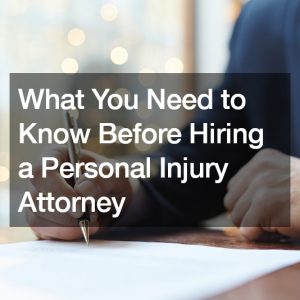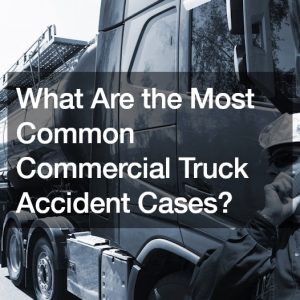There are several occupations where the risk of serious personal injury is greater than in other occupations. Most people don’t think about the risk of serious personal injury involved with seemingly everyday jobs. Some occupations are far riskier than others. Here is a list of occupations with a high risk of personal injury.
1. Roofing Occupations
According to the Department of Labor, a roofing contractor is almost ten times more likely to sustain an on-the-job injury that results in serious personal injury than other professions. As a matter of fact, roofing is number three on the list of professions where there is the highest rate of injuries. Roofing is dangerous for several reasons.
The first and most obvious reason a roofing job can result in serious personal injury is because of where the job takes place. You can easily tumble off and be injured if you are not sure-footed on the ladder or the roof. Ladder accidents are the most common roofing accidents. Of course, being off the ground and carrying heavy loads is also a risk factor.
Roofers suffer back and other injuries because they are expected to carry a lot of weight up to the roof. Roofers also work with chemicals and heat, which can cause burns and other injuries. Roofing is an occupation where the risk of serious personal injury is high. Roofers can reduce the risks of injuries with proper training and the proper safety equipment.

2. Chimney Care Occupations
Like roofers, chimney cleaners are required to get up on the roof to clean, inspect and repair chimneys. The chimney care provider must take equipment up on the roof. They have to navigate a ladder or scaffolding while carrying heavy equipment. The fall risk is great for anyone working on a roof, but that is not the only risk that a chimney care provider is up against. Chimney care providers face other risks.
Chimney care providers are exposed to toxic substances. Creosote, a highly flammable material, is a waste byproduct of burning wood. It can be a skin and respiratory irritant. As the chimney is “swept” of creosote, the chimney sweep is exposed to the irritant. In older structures, there may be asbestos present in the chimney, which is a known carcinogen. Chimney professionals risk serious personal injury from working on the chimney.
If there is a blockage in the chimney, the chimney care provider can be exposed to high levels of carbon monoxide. They are also exposed to potential structural risks when working with older chimneys. There are a lot of risks that these professionals must navigate. Proper safety equipment and practices can help mitigate some of the daily risks these professionals face.
3. Electrician Occupations
A residential electrical contractor faces unique risks that can result is serious personal injury. Electrical contractors provide essential services. They provide electrical installation, maintenance, and repair services. It’s important to recognize that electrical contractors face significant risks and the potential for serious personal injury due to the nature of their work.
The most obvious risk to an electrician is electrical shock. We all rely on electricity, but it can be very dangerous. Working with live wires and electrical systems day in and day out increases the likelihood of electrical shock. Even low-voltage shocks can cause serious injury or death. A key risk factor of electrical shock is faulty wires. Electricians constantly run into wiring problems that result in a shock.
Electrical contractors frequently work at heights, like when they need to access the utility pole. Electricians face fall hazards, another risk factor that can result in serious personal injury. Falls from ladders can easily break bones, cause serious spinal injuries or result in a fatality. Electricians take on a lot of risks. Training and safety equipment can reduce risks.

4. Pest Control Occupations
In some occupations, the risks are not immediately obvious, like with roofers or electricians, but there are still risks that can result is serious personal injury. Exterminating services is an occupation where the risk may not be immediately obvious, but there are still many risks.
One of the key reasons people hire professional exterminators is that they don’t want to risk using pesticides on their own. Exterminators regularly handle pesticides and other chemicals to eliminate pests. These chemicals can pose significant health risks if not handled properly. Exposure to pesticides can lead to skin irritation, respiratory problems, eye injuries, and in some cases, long-term health effects.
Exterminators often work in risky environments, including attics, basements, and crawl spaces. These spaces can be hard to navigate, increasing the risk of trips, slips, and falls. Exterminators may also encounter aggressive pests or wildlife, which can result in bites, stings, scratches, or other serious personal injury. Personal Protection Equipment and experience can reduce the risks.
5. Dock Building Occupations
Custom dock builders are essential craftspeople that build docks and other waterfront structures. While there are clear benefits to being able to work outside in beautiful settings, there are some risks that can lead to serious personal injury. Dock builders make it look easy but can be a tough, risky job.
The first real threat that a dock builder must consider is drowning. Dock builders work with heavy equipment, tools, and supplies around water. Unfortunately, one wrong move can have the builder swept out to sea, especially when the water is rough. Drowning is a hazard that every dock builder must contend with.
Custom dock building often requires physical labor, including heavy lifting, bending, and repetitive motions. The wear and tear on the body can lead to personal injuries that can plague the builder for life. Back problems, neck injuries, and more are risks that a dock builder faces. Mitigating risks requires that the builder follows industry safety standards and best practices.
6. Heating and Air Conditioning Occupations
HVAC (Heating, Ventilation, and Air Conditioning) professionals are responsible for installing, repairing, and maintaining HVAC systems in residential and commercial buildings. Being an HVAC contractor can be a very rewarding career where you make good money. However, it is not without its risks. HVAC technicians face several risks that can result in serious personal injury.
HVAC specialists regularly work with electricity. We discussed the electrical hazards that electricians face, and HVAC technicians face those same hazards. There is always a risk of being electrocuted. Frayed wiring in an HVAC system is a common problem that needs to be repaired. The HVAC tech, that is unaware of the problem, is at risk of being electrocuted.
HVAC technicians are also at risk of hazardous material exposure. They can be exposed to mold, asbestos, and freon refrigerants. They also face fall risks when working on a roof-mounted system. There are many risks involved with being an HVAC technician that most people don’t consider. Safety protocols should be in place to avoid some of the risks, and they should be a priority.

7. Septic Technician Occupation
If your home depends on a septic tank to manage waste, you likely have a relationship with a local septic tank pumping company. You also likely don’t think of the risks that a septic technician has to face every day. There are several risks that a septic technician has to deal with every day.
There is the risk of physical injury that every septic technician faces every day. Working for a septic pumping company can mean having to dig up the lid of the tank. This can put a strain on the back and can result in physical injury if not done right. There is always the risk of cave-ins when a septic technician is excavating the tank which can cause serious personal injury.
Septic technicians also are exposed to hazardous materials regularly. They may encounter human waste, cleaning chemicals, fuels, soil contaminants, and more that can cause serious illnesses. There is always the risk that a septic technician will slip and fall as well. This may seem like a low-risk occupation but there are risks. Strict adherence to safety guidelines and avoiding taking shortcuts can help to reduce the risks.
8. Tow Operator Occupations
Working for a heavy duty towing company may seem like a risk-free occupation. After all most of the time in this occupation is spent behind the wheel of a tow truck. However, professional tow truck drivers make the process seem a lot easier than it is. Towing can be rife with risks that can result in serious personal injury.
Towing heavy vehicles requires the use of specialized equipment, such as heavy-duty tow trucks, winches, and lifting devices. Operating and maneuvering these large and powerful machines presents risks of accidents, including equipment failure, rollovers, or being struck by moving parts. Being injured while hooking up a vehicle is a huge risk.
The risk of injury from equipment is not the only risk that a tow truck operator is faced with. There are traffic risks. Driving a tow truck through traffic, especially in inclement weather, can put the driver at risk of personal injury. In some cases, heavy-duty towing involves dealing with hazardous materials. Towing vehicles that are moving hazardous materials put the tow driver at risk of exposure. Proper training can help to reduce the risk of serious personal injury.
9. Sandblasting Operator Occupations
Industrial sandblasting is a process that is used to finish or refinish goods. Sandblasting can remove paint and fine particles from a surface and prepare the surface for the finished coat. This occupation comes with certain risks that are not evident in other occupations. There are health risks for the sandblasting operator.
The biggest and most often cited risk of sandblasting is inhaling hazardous materials. Silica dust (sand particulates) is a real danger to the human lungs. Sandblasting is a process in which fine grains of sand are propelled at high speeds at a product. A by-product of the process is silica dust. Breathing in this dust can cause serious lung problems.
Another risk factor is exposure to the skin. Sand blasting can cause serious burns when it comes into contact with unprotected skin. There is also the risk of chemical burns during sand blasting because some applications require chemicals to be used. Eyes need to be protected from the process or the potential for damage to the eyes is great. Proper protective equipment and strict safety protocols are a must in this occupation to reduce the risk factors and the resulting possibility of serious personal injury.

10. Trucking Occupations
Truck drivers are essential to the economy. They drive goods and products across the country. Truck driving occupations are a great way to make a living. However, there are some serious risks associated with driving a truck, but none greater than other drivers.
Professional truck drivers spend every day trying to dodge accidents. The roads can be a very dangerous place to work. Not only do truck drivers have to worry about their own driving, but they also have to predict what other drivers are going to do accurately. They also must contend with inclement weather that causes road hazards.
Truck drivers spend a lot of their time sitting behind the wheel, which can cause health issues from lack of exercise. They also frequently suffer from fatigue from long hours on the road. They often must load and unload their cargo, which can cause back and muscle injuries. Driving a truck for a living is not easy. Experience, training, and adhering to traffic laws can reduce some of the risks.
Every occupation comes with risks. Even sitting behind a desk all day can have risk factors that can result in serious personal injury. Being injured on the job can be life-changing. It can affect your professional life, your personal life, and your finances. Learn more about the risks associated with different occupations to better protect yourself.





